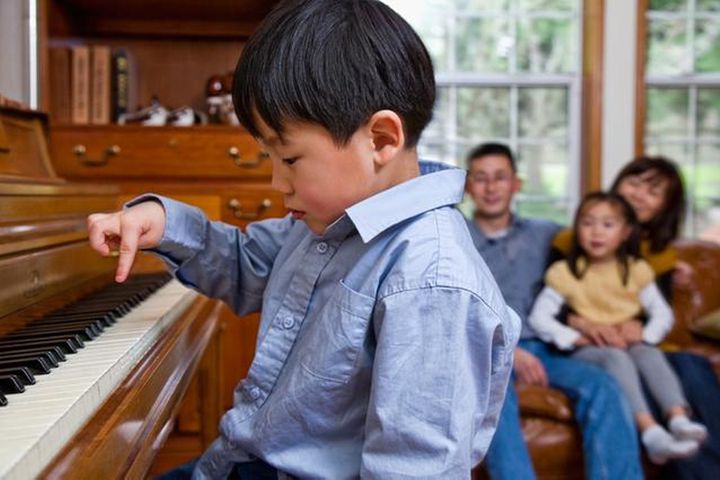 Online Music Lessons May Create USD14.3 Billion China Market by 2022
Online Music Lessons May Create USD14.3 Billion China Market by 20221(Yicai Global) Feb. 25 -- Internet-based tutoring may account for CNY100 billion (USD14.3 billion) of China's projected CNY400 billion music education market in 2022, according to data from investment firms.
Data show that 40 percent of piano learners in Europe and the US have online classes compared with just 4 percent in China. The number of online piano training institutions is tipped to multiply rapidly.
Mother Zheng Lin, whose family has not been out for a month due to the novel coronavirus epidemic, was worried that her child's piano lessons would be interrupted for too long. But after she and several other parents pleaded, the teacher agreed to set up a video course through WeChat for real-time instruction.
It was then that Zheng realized the convenience of online courses for the first time. She even began imagining her child's future classes combining online teaching with one-on-one tutorials, which could eventually lead to lower fees.
But a tutor surnamed Li, a graduate of the Piano Department at the Shanghai Conservatory of Music who has been involved in children's piano education for more than 10 years, sees it is a fine craft, focused on face-to-face instruction since hand gestures, keystrokes and other aspects need to be taught that way.
"In a video class, the degree of sound reproduction is not high," she said. "You can only correct the child's rhythm and finger movements. If the network is not working and the livestreaming pauses, you can't judge whether the student's fingers are in the right place."
Li believes that video classes are just a temporary solution to an unusual situation and that teachers will get back to offline classes after the epidemic wanes.
Still, the 'internet + music education' model has been in the grip of an investment boom for some time. Major online music education platform VIP Peilian landed USD150 million in its Series C financing in November 2018.
"Online coaching is just a supplementary tool, and it's certainly not all about music education," said Shen Yanshu, an early investor in VIP Peilian.
Piano education must be face-to-face and involve one-on-one teaching, Shen said. When a student gets to a certain degree, they can use online tutoring to solve some problems.
Next month, he will unveil a new online music education service VipSing that Shen developed. For children aged between four and 14, the service will fill a gap in the internet voice training market.
China had about 200 million K12 (primary to high school) and preschool students last year, and the overall online penetration rate of K12 and preschool education is about 15 percent this year, with about 30 million online users, according to iResearch Consulting Group data.
Of those, 16.4 percent of users chose vocal education courses, and 16.1 percent chose instrumental music courses. China's K12 and preschool online education market is expected to reach CNY200 billion by 2022.
Editor: Peter Thomas